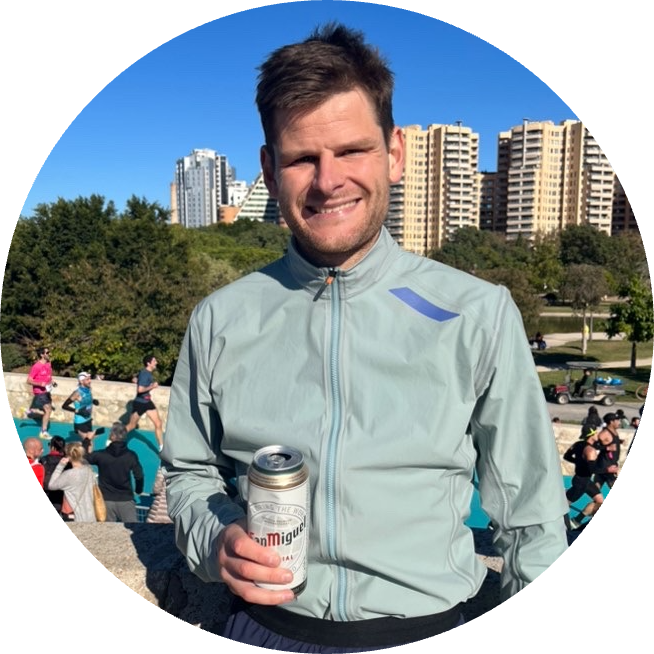
James Turner
Valencia Marathon
James' headline numbers
James' strategy
Fueling
Carbohydrate is the main fuel you burn when racing. Failing to fuel properly is a leading cause of underperformance in longer races.
After running a 2:22 marathon in Seville earlier this year, James was looking forward to returning to Spain and testing out his optimised fueling strategy. One of the main differences was the timing of his pre-race fuel. He made sure he had his last PF 30 Gel close enough to the start time to avoid ‘reactive hypoglycemia’, a drop in blood glucose in response to that final carb dose. This went well, and he was pleased to report no gastrointestinal discomfort, even as he settled into the race and took over 90g of carb per hour, while maintaining an average pace of 3:18min/km (5:18min/mile).
Hydration
Taking on board an appropriate amount of fluid and sodium is essential to maintaining blood volume and supporting the cardiovascular effort needed to perform on race day.
Whilst the absolute amount of sodium and fluid consumed per hour is important, it’s critical to consider these in relation to each other. This is known as 'relative sodium concentration' and it’s expressed in milligrams per litre (mg/L). How much sodium you’re taking in per litre of fluid is more important than the absolute amount taken in per hour.
In fairly mild conditions, James knew his moderate sweat losses across the 2 hours 20 minutes would not accumulate enough to significantly impair his performance, which usually occurs after losing 2-4% of body weight due to sweat. This means that despite only drinking ~210ml of fluid each hour (including what he drank in the 30 minutes pre-race), we wouldn’t recommend changing his fluid volume intake. His body may have reacted positively to slightly higher electrolyte concentration of his fluid, however his subjective feedback suggests this wouldn’t have made a significant difference to such a strong performance.
Caffeine
Beyond the Three Levers of Performance (carb, sodium and fluid), caffeine is one of only a few substances that is proven to improve performance for most endurance athletes as it can help stave off mental and physical fatigue.
As James mentioned in his energy quote, he is used to taking a lot of caffeine day-to -day, so decided to go ‘cold turkey’ in the run up to Valencia to feel more of a stimulus on race-day. It turned out to be the right move for James who didn’t report having any withdrawal symptoms before the race, and felt a significant perk from his pre-race coffee.The timing of his caffeine intake was one of the changes in James’ strategy from Seville, where he effectively fueled the afterparty by taking his last caffeine gel just 20 minutes before the finish. This time around, he was aware that caffeine can take up to 45 minutes to peak in the bloodstream, so his first four gels were caffeinated, ensuring he experienced maximum benefit during the race. While above 'general recommendations', James experienced no side effects and so wouldn't necessarily need to change anything next time around.
How James hit his numbers
Here's everything that James ate and drank on the day...
James' weapons of choice
Final thoughts
James' full stats
Data Confidence?
There is some confidence in the quantities and brands of products consumed but the data may lack specifics (e.g. volumes specific flavours). A high number of estimations have been made and the room for error is moderate-high. There may also be the possibility that some intake has been grossly over- or under-estimated.